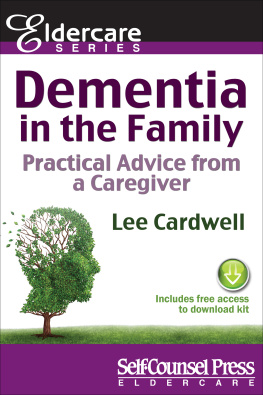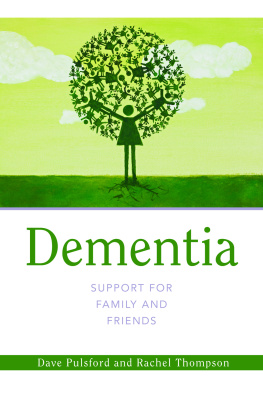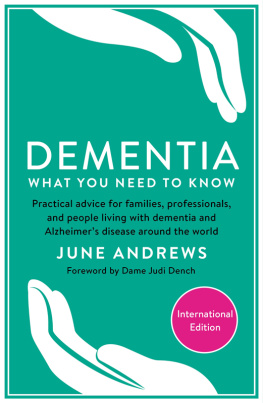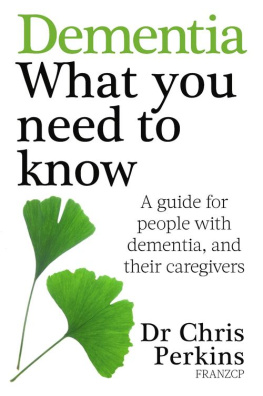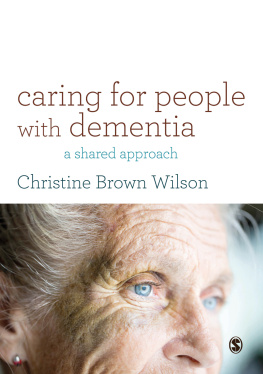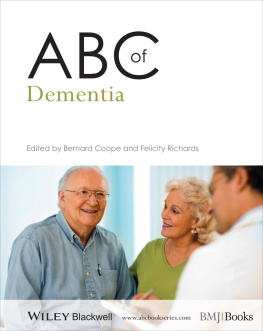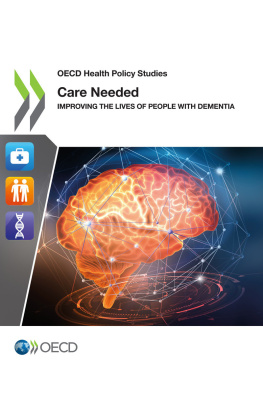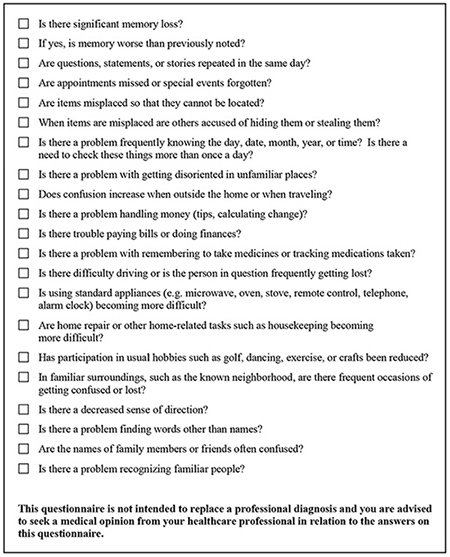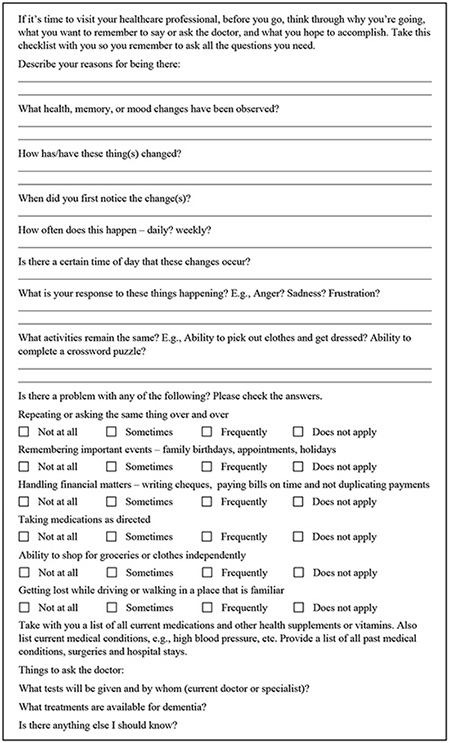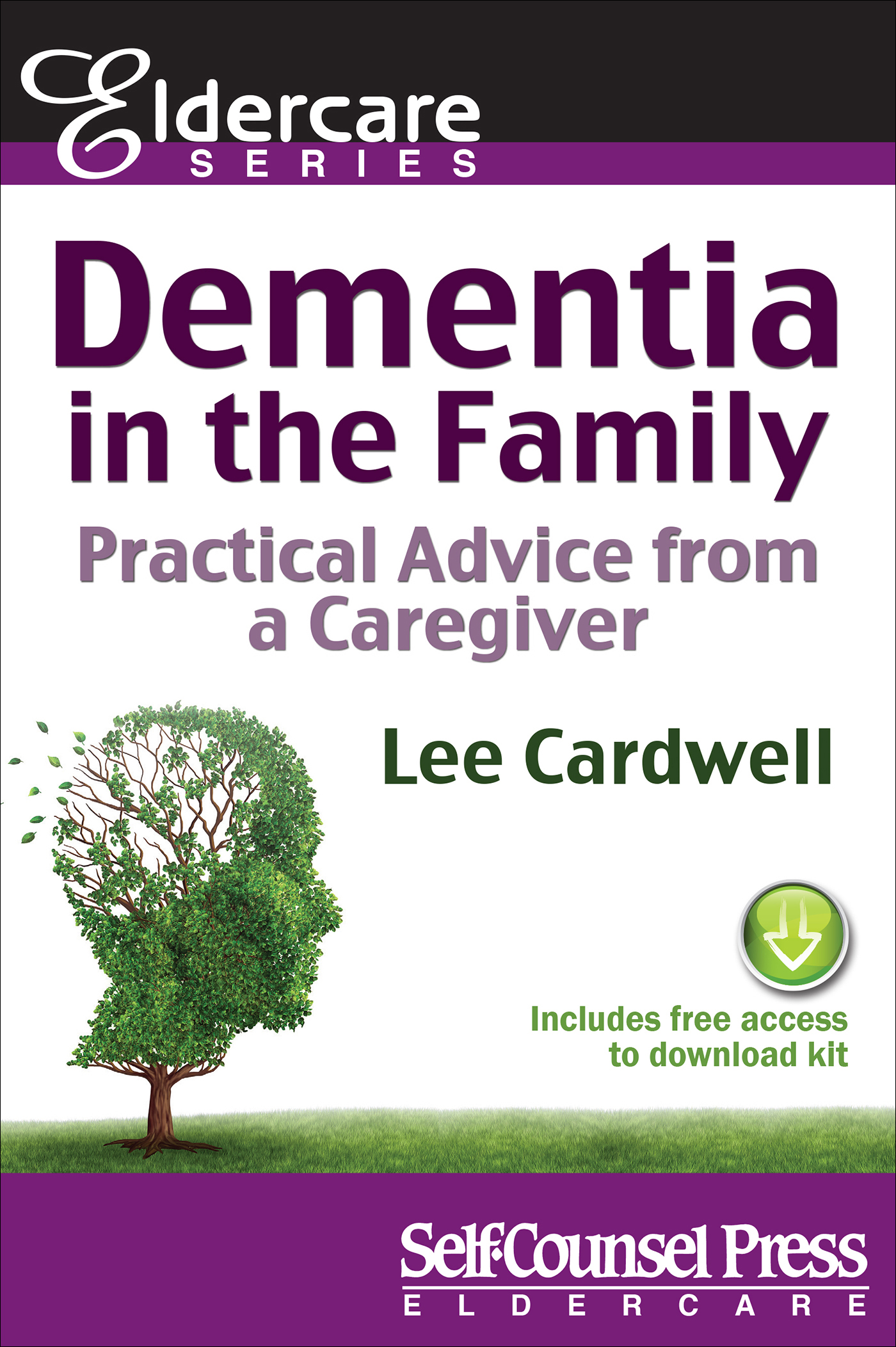
Introduction
When you love someone, they never get lost; wherever they go, they are still somewhere in your heart and as long as they know that, they will always know that when they find you, they find themselves once again.
Philippos
A vicious, uncaring thief is among us, and it is stealing the thoughts and memories of your family members and acquaintances. I have had to confront this villain over and over throughout the past several years. Many of us will have to tangle with this monster sometime, either for ourselves or for someone close to us. The thief has many names, but the one most common is dementia.
Dementia comes from the Latin de (without) and mentia (mind) so it literally describes a state in which you are without your mind.
This evil entity does not break in with a lot of commotion or noise. It sneaks in silently and progressively steals one memory or thought at a time until it robs a person of his or her identity. The victims of its crimes may actually laugh at the first few attacks, thinking, How silly of me to forget where I put my keys, or Why in the world would I have forgotten to turn left at the corner to get to my daughters house?
By the time friends and relatives begin to notice such robbery, this mind burglar has entrenched itself so firmly in the affected mind that it is impossible to get it to release its tightening grip. The villain continues the process of gradually stripping that persons thoughts and memories. The best thing loved ones can do is to try to identify the culprit early, arm themselves with information and courage, and try to manage the impending deterioration.
I wrote this book about my experiences with my mother, and subsequently my husband, to help those struggling with the difficult decisions related to caring for someone suffering from dementia. My hope is to give others in this situation the information that I wish I had when I needed it most. Perhaps I can save someone from endless hours of self-recrimination and guilt. Or, just let you know you are not alone. In this book, and on the download kit included with it, youll find some tools to use when considering care options for loved ones with dementia so you feel like you can make an informed decision.
Please note that I am not a trained medical person. I am just someone who has lived this experience twice, and I want to share it with others. I also want you to know that you can get through this period by looking at things through a different perspective. While I dont suggest wearing rose-colored glasses or being overly optimistic, seeing events with a slight pink tinge will never hurt.
According to Functional Neuromodulation, Ltd., Alzheimers is a progressively debilitating disease that slowly destroys memory and thinking skills, ultimately resulting in death. Alzheimers is the most common cause of dementia among older persons, affecting 13 percent over age 64 and nearly 50 percent over 85. In 2015 an estimated 5.9 million North Americans suffered from Alzheimers. The number is expected to exceed 9 million by 2030 and 16 million by 2050. The cost of Alzheimers to society in North America will exceed $200 billion this year.
Chapter 1
What Is Dementia?
If you are reading this book you probably have done some of the same research that I have to find out what exactly this disease, dementia, is. You have also most likely asked the same question I did: Does my loved one have dementia or something else with similar symptoms?
The best explanation I have found is that dementia is not a specific disease. The term instead describes a wide range of symptoms associated with a decline in memory or other thinking skills, severe enough to reduce a persons ability to perform everyday activities.
Alzheimers disease accounts for the greatest percentage of cases of dementia and vascular dementia, which often occurs after a stroke and is the second most common type of dementia (according to the Alzheimer Society of Canada). But many other conditions can cause symptoms similar to dementia, including some that are reversible, such as thyroid problems and vitamin deficiencies. I will discuss these diseases in a bit more detail in Chapters 2 and 3.
According to the Alzheimers Association, dementia is often incorrectly referred to as senility or senile dementia, which reflects the formerly widespread but incorrect belief that serious mental decline is a normal part of aging. Many people retain their clear thinking and remembering abilities well into old age, and some types of dementia are diagnosed at much younger ages than we would consider senile age groups.
If you are concerned that you or a loved one may be experiencing any kind of dementia or mental issue, it is likely time to see a healthcare professional. I have included Checklist 1 here and on the download kit as well. It is a list of questions. If most are answered yes, it should point you in the direction of a qualified healthcare professional for a proper diagnosis. If you decide it is time to see a professional, Checklist 2, available on the download kit as well, can be filled out and brought with you to help you remember what you want to ask.
Battle tip:
Dementia is not a one-diagnosis-fits-all disease. Dont ignore symptoms or rely solely on a checklist in a book; if you think someone is showing signs of difficulty handling daily living, get him or her to see a doctor for a qualified diagnosis as soon as you can.
Checklist 1: Should You or Your Loved One Visit a Doctor about Possible Dementia?
Checklist 2: Preparing to Visit the Doctor
Chapter 2
Alzheimers Disease
As previously mentioned, Alzheimers Disease is the most common type of dementia. There is not even a proven test to say that someone has Alzheimers until after the person is dead and the brain can be examined. But doctors can diagnose symptoms of the disease and say with some certainty that this is what someone is suffering from at an earlier stage.
Early symptoms that indicate dementia related to Alzheimers include difficulty remembering names and recent events, apathy, and depression. Later symptoms include impaired judgment, disorientation, confusion, behavioral changes, and difficulty speaking, swallowing, and walking.
New criteria and guidelines for diagnosing Alzheimers were published in 2011 by the National Institute on Aging/Alzheimers Association. They recommend that Alzheimers disease be considered a disease with three stages.
First stage: This is sometimes referred to as the mild or early stage of cognitive impairment. In this stage it may be difficult to pinpoint a problem, as the person with mild Alzheimers may still be driving and working and still interacting socially with others. The person in this stage would begin to notice memory lapses and the inability to remember recent conversations and events. He or she may not be able to remember some words or names. Tasks the person was once able to do with ease may now be more difficult. The steps to performing a task may not be clear or might be difficult to follow in order. Repeating questions several times in a short period of time, even if previously answered, is another symptom that occurs at this stage. Forgetting what has just been read and losing and misplacing objects are other signs that something is happening. She may have trouble planning and organizing and need reminders for daily activities. He may not be able to react effectively when driving or may have difficulty finding a route he should know well. People at this stage sometimes suffer from depression and experience increased mood swings. This first stage can last anywhere from two to four years.

